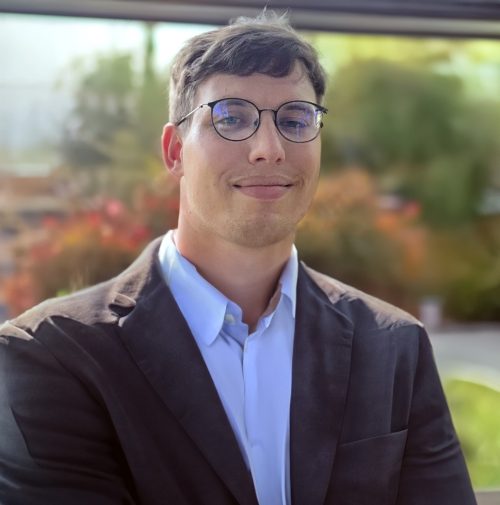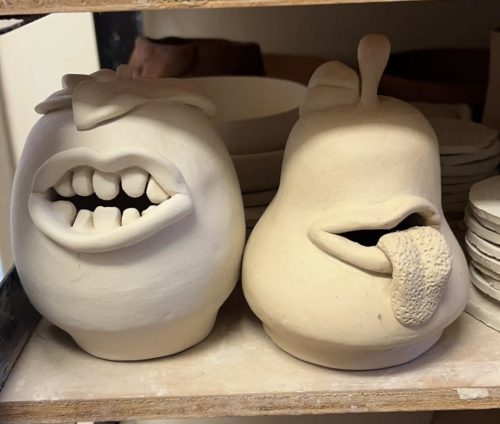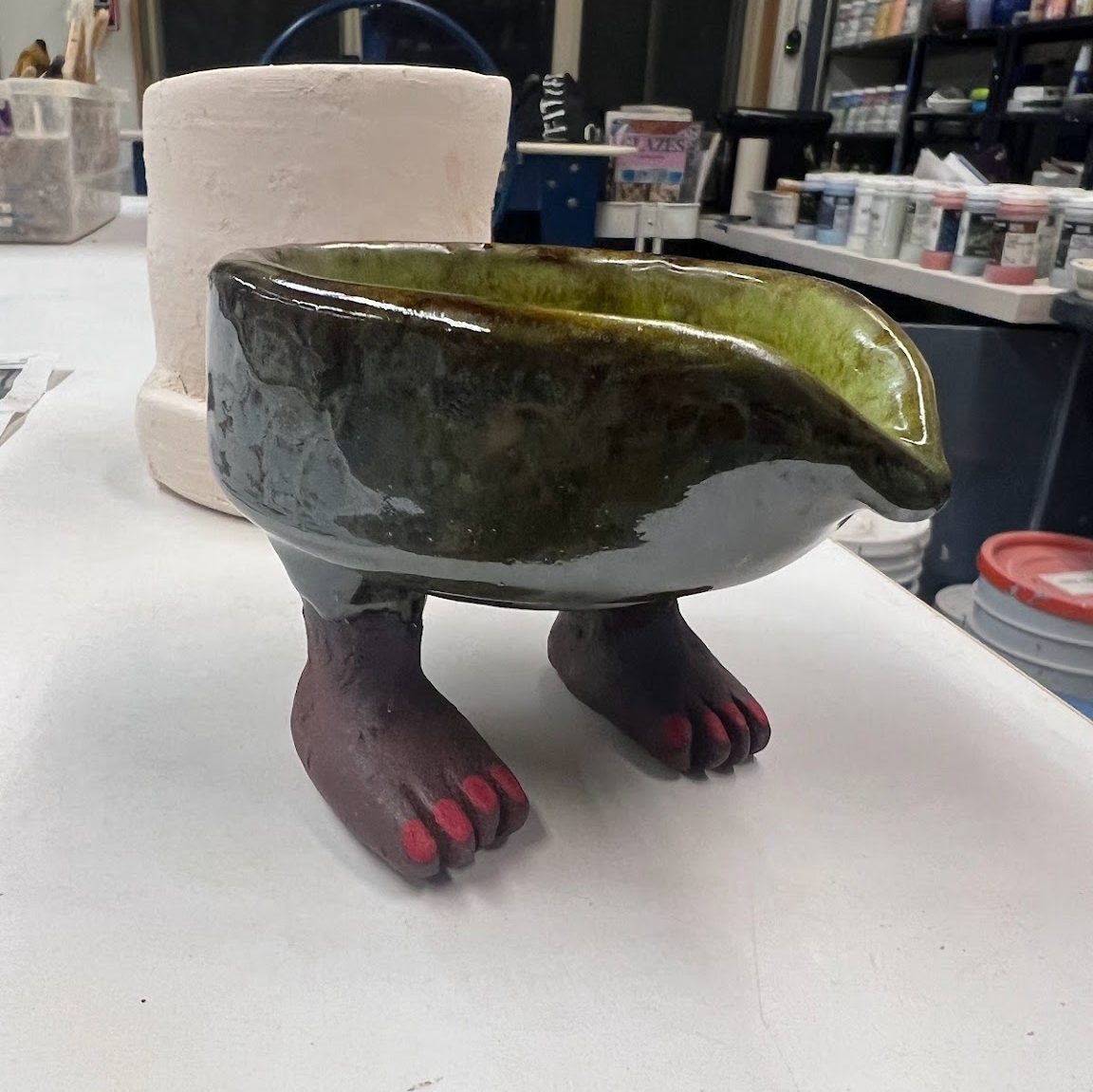Meet the Node correspondents — James Zwierzynski
Posted by the Node, on 14 February 2024
James Zwierzynski is currently a first-year PhD student at Stanford University, investigating vascular morphogenesis and growth in the placenta. With a background in humanities, James aims to combine his interests in philosophy and science to write about topics in reproductive biology and philosophy of science. We caught up with James to find out more about his career and his plans as a Node correspondent.

You’ve been selected as one of our new correspondents, congrats! What made you decide to apply?
Development is one of my favourite journals to read and I’m just a giant science nerd. Reading Development meant I very quickly ended up discovering the Node and FocalPlane. I love this broader community of developmental biologists who are really interested in the same things that I am. I also have to admit that I am a huge fangirl for John Wallingford. He’s a PI in Texas and one of the things his lab works on is Shroom3, a gene that my old lab was very interested in. I got introduced to him through his papers and I was like, “Oh my gosh, we’re working on the same gene that nobody works on!” I very quickly discovered that he writes about developmental biology for not only scientists but also for the wider community. His #DevBiolWriteClub posts on the Node advocate that to become a good scientist, you need to build your skills in reading and writing. When I saw the call for new Node Correspondents, I thought this would be a good opportunity to improve my skills in thinking, writing, and communicating about science.
Have you done much science writing or other forms of science communication before?
I think that like so many scientists, I’ve mostly done writing while preparing manuscripts, but I haven’t done writing where I pick a topic and write a long form post. I think that is something I’d like to build on because it’s a skill that will not only help me become better at communicating more broadly but make me a more well-rounded scientist.
This quarter I’m teaching in a course for undergrads called ‘bioBUDS: Building Up Developing Scientists’. It’s a student- and community-oriented course, focused on helping students from underrepresented backgrounds in science thrive through workshops, skills, and resources. I’m giving a lecture later this quarter that I’ve titled ‘Meta-Science’. It’s about what can, should (or even shouldn’t!) science tell us. I plan to go through why the scientific thought process is the way it is. We often think of the scientific method as generating a hypothesis, gathering data, and then reporting your results. But when you look back at the intellectual history of science, there are cultural and political events that have shaped the way that we think about science. Especially in the Interwar period, when logical positivism sought to unite science and philosophy, and proofs and direct observation as “truth” in science. I would argue that maybe we don’t have to think about science in this way – it actually has tough ramifications for the public’s view of science as purely “objective”. I will also explain how science relies upon both revision but also reduction. On the grand scale it’s all just hypotheses; you are never really going to prove anything for sure. That lecture is one of the ways I’m trying to do more science communication and I’d like to do more through other channels too, depending on how busy I am throughout the quarter.
What is your background and what are you currently researching on?
Most of my research experience was at Indiana University School of Medicine; I was there for about two and a half years after I graduated from the University of Notre Dame. I worked on heart development, and the pathways altered in structural heart defects, specifically focusing on non-canonical Wnt signalling. I fell in love with research and decided I was going to apply for a PhD. Now I’m at Stanford and joined Kristy Red-Horse’s lab. I pivoted a little bit from a cardiac lab to a vascular biology lab. I’m specifically interested in vascular morphogenesis and growth in my favourite organ, which is the woefully understudied placenta. There are so many mysteries about it. I’m really excited about finding out more.
What ideas do you have for the Node?
One of my ideas relates to my current research. I consider myself a developmental biologist who’s concerned with vascular biology but also reproduction. I plan to write about reproductive biology, which I think is a really understudied field.
I would also like to delve into the ideas in philosophy of science. One of the things that really inspired me as a scientist is my background in the humanities and my training as a philosopher. I’d like to explore the assumptions behind the way that we do science, and the implications of some scientific work that we don’t often think about. A wonderful example of this that I read recently was the book, Embryos Under the Microscope: The Diverging Meanings of Life, by Jane Maienschein. She traces the history of microscopy and embryology alongside advances in technologies, such as cloning and IVF. She argues that the embryo in many forms has influenced the way in which we culturally and politically think about science itself. Now, her book is approaching a decade old, yet the ideas she presents are perhaps more relevant than ever. I would really love to write about the ways in which the cutting edge of developmental and stem cell biology are still important, even though we’re not cloning Dolly the Sheep. There was controversy this past year over the recent stem cell embryo models; we had research that got picked up by the media and brought into the public realm outside of the scientific community. I think that writing about these things in a really thoughtful way is important. I would like to write about what is developmental biology doing today, what does that mean for the world and how we’re thinking about science.
What do you hope to gain from the experience of being a Node correspondent?
My ultimate goal is to inspire people to read something that I’ve written and be excited about it. I hope other people would be excited about science and science-adjacent topics, specifically related to development because that’s the thing that I love.
My secondary goal, thinking about my own growth, is to grow my skills in writing, take ideas from my head and put them on paper in a cohesive way. I think that it will not only help me to be a better communicator in different ways, but I would argue that would make me a better scientist too.
Is there anything that people might find surprising about you?
Some people are surprised that I studied philosophy for a while. I had kind of an odd path to my PhD. Another surprising fact is that I am a twin, and my oldest brothers are also twins. It’s a little bit weird to have so many twins in the family, but I’m special in that I’m the only scientist!
Outside of the lab, what do you like to do in your spare time?
In my spare time, I spoil my cat and a dog. I read through tonnes of books, and I have an ever-expanding book collection. I also make a lot of pottery – the most recent things I’ve been working on are a series of weird fruits with anthropomorphic facial features on them. I’d like to make science-inspired pottery too; as somebody who is obsessed with the placenta, I think it’s the perfect coaster shape. Kristy, my PI, much of her career on collateral artery development in the heart. I think a heart cross-section would be a great coaster as well. I would also like to make little espresso cups for the espresso machine in the lab and carve something science-related on the side of the cups, like the different stages of embryo development. I have all these ideas, but I just need to take the time to go to the studio, it ends up being really analogous to my work in the lab. I have a whole list on my computer of things to do in the ceramic studio right next to the list of things to do in the lab.




 (1 votes)
(1 votes)